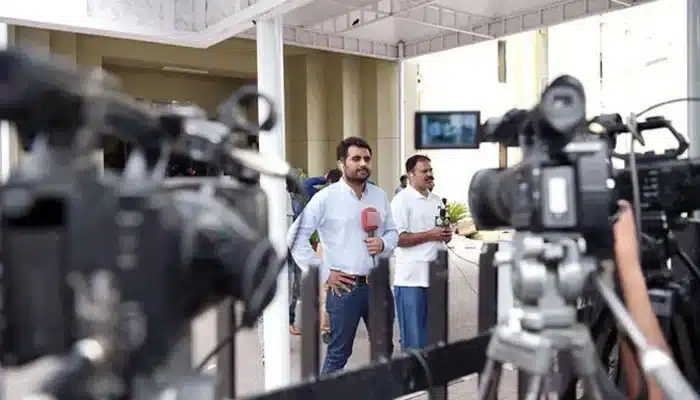Journalists urged to use RTI in investigative reporting to combat
Lahore: A two-day seminar was concluded by the Friedrich Nauman Foundation for Freedom (FNF-Pakistan) on Sunday. The main objective of the seminar was to aware journalists of the use of Right to Information laws for investigative reporting and countering fake news.
RTI, 2013, was passed by the Punjab Assembly in 2013 to promote transparency in the working of provincial authorities by securing citizens’ access to information.
More than 30 journalists, rights activists and students attended the seminar and commended the efforts of FNF-Pakistan for organising such a seminar and called on the journalists’ organisations to hold similar sessions for young journalists to promote investigative reporting.
While addressing the participants, Head of Programs and Administration of FNF Pakistan, Muhammad Anwar, said “journalists can promote investigative journalism through the use of RTI”.
“This ultimately strengthens the credibility of their stories”, he further added.
While sharing the legislative landscape of RTI in Pakistan, Program Manager of FNF Pakistan, Syed Raza Ali, stated access to information is guaranteed under Article 19A of the Constitution and explained there are five RTI laws in Pakistan.
He further described, that being the 4th pillar of democracy, journalists are the representatives of the people in terms of using the RTI Act for investigating and publicising information of public interest.
“Accessing information through the RTI Act, especially young journalists, can contribute to ensuring transparency in public, professional, and social spheres. Provincial public bodies are legally bound to provide the requested information within 14 working days under the Punjab Transparency and Right to Information Act 2013,” he further stated.
“In case the public bodies fail to provide the requested information, citizens can lodge complaints before the Punjab Information Commission”, Ali added.
“The Punjab Information Commission is an independent appellate authority that has the power to direct, summon, and penalise officials who obstruct the flow of information”, the program manager concluded.

